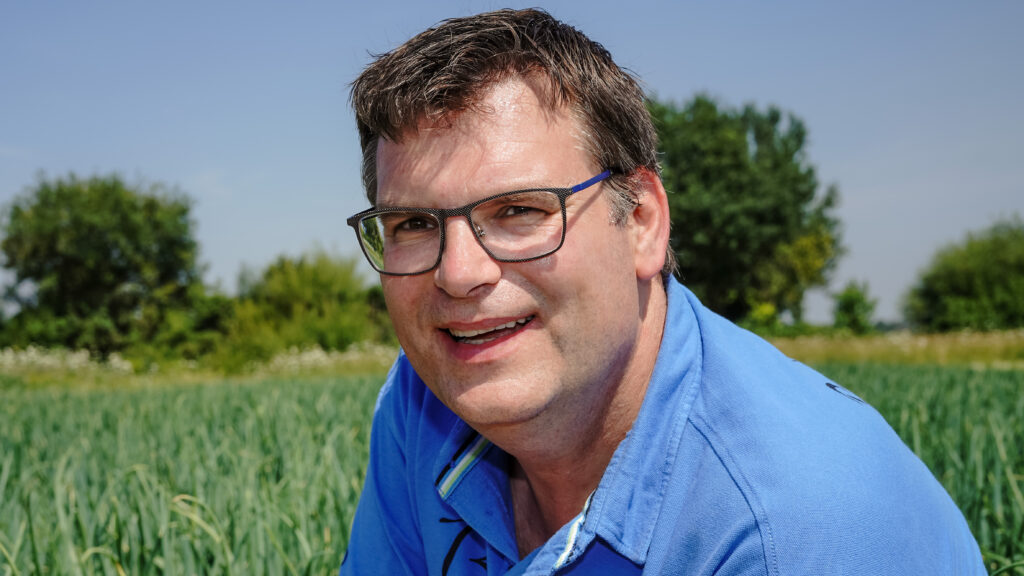Hopefully, breeders can add new useful techniques to their breeding toolbox.
In this series, we introduce you to the people behind CropXR. Who are they, what do they do, and why are they passionate about their work for CropXR?

Name: Timo Petter
What is your professional role within CropXR?
I work as head of allium, beetroot and celery breeding at Bejo Zaden. As a seed company, Bejo participates in various vegetable research projects within CropXR. I am part of the so-called CropXR onion work package.
Can you describe this role in a nutshell?
Our long-term goal is to breed onion varieties with enhanced resilience to biotic and abiotic stress. We want to better understand which specific regions of the onion genome are key for processes that stimulate plant growth and defense. Building on this knowledge, we want to develop genetic markers that breeders can apply in their breeding programmes. At present, we focus on the development of reliable trials, both indoor and in the field. The aim of these trials is to measure important traits like germination and plant establishment, root and leaf development, and bulb growing of the onion. For this, we use a subset of Dutch hybrid onion varieties. It is not easy to realize uniform trials that mimic the growing conditions of farmers’ fields. However, it is important to do this as realistically as possible for further genetic research.
Why are you driven to contribute to the CropXR project?
I hope and expect that the powerful combination of public and private research will help onion breeders. The broad range of professional disciplines and expertise will likely contribute to supporting onion breeders in finding complex traits that are needed to breed robust varieties. The long-term cooperation between companies, students, universities and knowledge institutes is interesting and gives me energy!
What is the main challenge you face?
Seed companies like Bejo invest a lot of time and means in plant and seed research. We are commercial plant breeders, and we see a lot of opportunities in the world of plant breeding. We are always keen to jump on board when they arise. I often need to travel abroad for Bejo, and I need to combine this with my work for CropXR. This is a challenge, as CropXR deserves a lot of time and attention. In addition, the
process of establishing clear research goals and keeping all stakeholders focused on them in the set time frame will probably be a challenge too.
What do you personally hope to achieve within CropXR in the next (10) years?
I hope that we succeed in developing genetic markers for complex resilience traits in the onion. This will enable breeders to add new useful techniques to their breeding toolbox. In addition, I cherish the inter-organisational contacts that CropXR provides. I hope that they lead to a valuable exchange of knowledge and that they enable personal growth. Not only for me, but for all the students, breeders, researchers, teachers and coordinators involved.

